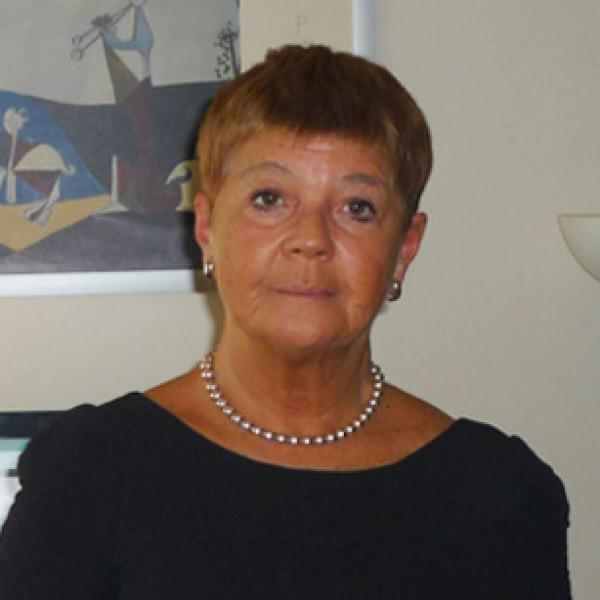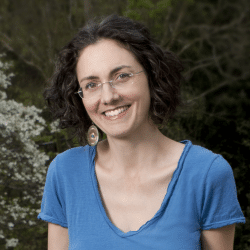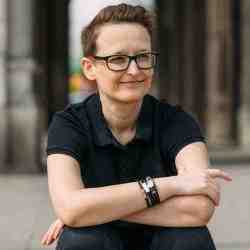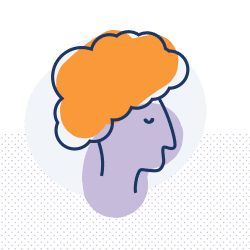Introduction
Since the early 1980s, Mara Maudet has been creating and mainstreaming a set of standards for the design and delivery of social services in disenfranchised urban areas in France; now a common practice in childcare. Targeting early childhood, youth and women’s economic empowerment, Mara’a work has been helping welfare policymaking processes shift from a top-down model, to a concerted approach engaging citizen organizations in the design and delivery of social services centered around the needs of citizens.
L'idée nouvelle
A serial social entrepreneur in some of France’s most marginalized and disenfranchised urban areas, Mara has over and over developed and improved new approaches for the design and spread of more humane, more effective social services. Focusing on underrepresented populations, including immigrant families, single mothers, and youth in low-income areas, she has repeatedly identified gaps, recognized opportunities for change, prototyped interventions, and demonstrated the impact of user-centered, community-based services. In each of her models, Mara induced both a higher social impact but also a higher cost-effectiveness of public investment, which inspired a broad range of social entrepreneurs, gained policymakers’ recognition, and empowered her to influence the criteria of public subsidy attribution. To date, the impact of Mara’s approach spans all areas of community development policy.
Mara is one of the first intuitive promoters and leaders in the use of user-centered design. Either when prototyping a new approach to community social centers, improving professional training schemes for high school dropouts or reinventing early-childcare to integrate parents’ employment and local economic development, she has always questioned the needs of her participants and placed them at the heart of her work. In doing so, Mara has played a key role in ensuring the representation of her target populations’ voice in social program design.
Mara also sees the need to break the silos between different administrations that define and fund social program delivery in order to truly empower marginalized populations. Focusing on low-income, immigrant, unemployed single mothers, she is now demonstrating the need to integrate social, family-based intervention with professional training and empowerment: working with hundreds of families. Mara provides a combination of childcare and back-to-work support, with a successful professional integration of 90 percent of participating mothers. Mara’s breakthrough model is demonstrating the possibility and relevance for several administrations to join forces around a single intervention and define a portfolio of objectives that span family, gender equality, employment, and urban development policy, and is having a deep impact on current policymaking.
Le problème
Since 1945 French administrations have been recruiting top civil servants who design national and local policies out of a handful of elite colleges; political leaders generally come out of these same schools. Conceived to be a democratic ladder into public service, these colleges tend to nurture students from privileged environments, and whose parents belonged to the elite: only 7 percent of the three top school’s graduates come from low-income backgrounds. As a result, people who design social policies and programs have little first-hand experience with people in underprivileged areas.
Until the 1970s, when the economy was booming and the social ladder was working, this was not too much of a problem: no matter their social or geographic origin, people had opportunities to lift themselves out of poverty. But since then, the machine has gotten stuck and the welfare state has proven its limit, in particular in poor urban areas around large cities with high concentrations of immigrant, low-income populations. While sociologists and economists have been encouraging policymakers to include target populations and to derive effective on-the-ground social interventions in the design of social policies, French elites had no practice, culture or incentives to do so. Indeed, these populations were often of foreign origin and did not have the right to vote.
Things started evolving in the 1980s thanks to the courage of a few local political leaders who supported innovative social programs and started engaging citizens and social entrepreneurs to develop their local agenda; in turn, some of these social entrepreneurs, among them Mara, played a key role in influencing the design of national policymaking. But while representation and consultation of underprivileged groups and social entrepreneurs has now become a mainstream rule in policy making, strong challenges remain: the French policymaking system indeed works in silos, and decisions regarding similar target populations, but different dimensions of their lives are framed in complete isolation and depend on different budget lines that are not consolidated: poverty, employment, housing, childcare, health policies, and programs are completely isolated, which strongly limits their efficacy.
La stratégie
Arriving in France in the early 1980s and moving to the extremely poor city of Chanteloup-les-Vignes, Mara saw that local social programs were poorly designed and did not adapt to the needs and lifestyles of local populations. She also saw that a social unrest was brewing and that there was a demand from local populations of diverse ethnic and cultural origins to participate and be represented in decision-making processes. From then on, Mara started working with local leaders to set up a series of extremely innovative, participatory programs involving all inhabitants:
• Mini-Loup, to mobilize local teenagers to contribute positively to the community, either by taking part in urban renovation programs or by caring for primary school children who were left alone at home after school
• Baby Loup, a one of a kind early childcare facility with extended hours to cater to parents with staggered hours and shift work, and adapted tariffs for all. Today, this childcare facility operates 24/7, a model that remains unique in France
• Parenting workshops, for mothers and fathers separately, as a platform for parents to discuss their challenges and find community
• Mamie Loup, a program to mobilize unemployed, under-resourced women in the community and especially to care for elder, isolated women
• A local paper, run by and for inhabitants, with locally-relevant content in local languages
Mara first set up all these programs and activities informally, each time identifying a local champion to take a leadership role. She soon had over a thousand participants in all her activities, and managed to raise attention from the mayor and to garner some financial support. Mara also convinced him that he had a political opportunity to use this work as a tool to promote his city and leadership, and Mara soon presented her work to various ministries and policymakers. Mara’s successful experience played a key role in the design of the new status for Social Community Centers, local entities meant to provide activities and a community space for local inhabitants: by influencing funding criteria, Mara ensured these centers addressed intergenerational needs, and fair representation and participation of inhabitants. All of Mara’s activities in Chanteloup exist to date, under the umbrella of the local social center, or independently as in the case of the childcare facility, and have had a big influence in inspiring other COs.
But while local participation and representation mattered, Mara soon saw that low-income populations also struggled to access economic citizenship through professional training and fair employment. She explored opportunities for change by leading a vocational training center targeted at high school dropouts for a few years, during which she totally reinvented the way vocational training centers were run: through a user-centered approach, she changed the centers’ opening hours to consider people’s transportation times and personal constraints; implemented methodologies to host students and to empower them to believe in their success; and changed the way trainers were recruited and trained. Mara leveraged her outstanding results to trigger a wave of change in the professional training world by organizing conferences and publishing research articles, and by influencing policymakers working in that field.
By the early 2000s, Mara saw an opportunity to merge her various experiences and to address what she saw as one of the main limits of social work in France: fragmented approaches to people’s social challenges. Focusing on unemployed, isolated, poor mothers in some of the poorest urban neighborhoods, she designed and piloted the Institut d’Education et des Pratiques Citoyennes (IECP), a model which associates the key dimensions of these women’s social and economic integration. By giving women access to adapted childcare with long hours and adapted tariffs (whereas public childcare facilities target working families), and combining it with back-to-work coaching, a training program and a professional integration scheme into childcare professions, she is successfully bringing 90 percent of these mothers back into employment. With these strong results and eight childcare facilities operating in urban areas around Paris, Mara is now helping the French government rethink its childcare policy by bringing together family, gender equality, employment, and urban development administrations: the 100,000 childcare spots the government is planning to subsidize over the coming ten years will combine objectives for each of these policy areas.
La personne
Mara was raised in a wealthy Brazilian family and discovered poverty through the contrasts between her lifestyle and of the communities around her. One of her first deep, personal shocks was to discover her family had owned slaves just a few decades earlier—a big influence on her decision to study sociology. Mara focused on women’s conditions and the numerous challenges they face, in particular to accessing economic rights and employment. For example, without childcare, she found that some women tied their children to chairs at home with just enough food and water to survive the day while they went to work. This led Mara to start a master’s program in urban sociology and to conduct applied research projects with families residing in slums.
When Mara was a student, she and her husband took an active part in the resistance against the military regime and were in jail for a few months, which had a deep impact on her perception of the world. Rather than ask her family for the protection their social status entitled them to, she followed her husband into exile. They moved to Chile before relocating to France as political refugees. Mara resumed her studies with a master’s degree in anthropology and, shocked to discover that poverty and gender inequality were also prevalent in low-income French neighborhoods, she focused on urban development and brought what she learned in Brazil to the French context. Since then, Mara has worked hand-in-hand with local leaders and mayors to develop pragmatic responses to social challenges and to empower local populations, by engaging with policymakers to promote user-centered policies.
When asked how she has been able to impact such a broad variety of issues across her life, she simply answers that there were historical windows of opportunity and that she saw possibilities where others saw obstacles. She also very modestly says that as no one else works as she does, people are coming to her for advice. Mara plans to focus the rest of her career on the expansion of IEPC across France, and is looking forward to building a stronger seed-funding model to franchise childcare facilities across other countries.




